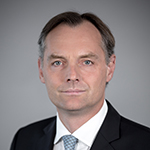Le Temps (03.08.2020) - In the past ten years, hedge funds have struggled to offer any kind of satisfactory returns, constrained by persistently weak interest rates and a lack of volatility.
While some strategies managed better than others, on the whole the sector fell short of expectations. In equities, hedge fund managers found it difficult if not impossible to compete with one of the most spectacular bull markets in history.
With low global growth and flat inflation, this endless rally saw investors lunge for every pocket of growth and indices dominated by the GAFAMs (Google, Apple, Facebook, Amazon, Microsoft), setting record after record. In fixed income, the flood of liquidity released by central banks meant any company could access credit, including those with more dubious debt profiles, making it difficult to separate the wheat from the chaff.
A new leaf
That now seems to be water under the bridge. In the fight to cushion the blow to the economy from the pandemic, a broad fiscal arsenal has been deployed to take over from ultra-accommodative monetary policy. This stimulus offensive on multiple fronts is likely to spark a rise in inflation, which in turn should nudge bond yields back up, though tenuously, into positive territory.
On equity markets, this regime change will cause disparities to return, with price moves giving a clearer indication of earnings expectations, as already attested by the outperformance of so-called ‘quality’ growth stocks. The trend has already materialised in bond markets too, where the slump is hitting less resilient companies and sectors the hardest.
Add to that the uncertainty as to the duration and extent of this crisis, and you have all the ingredients for creating opportunities for active strategies. According to Morningstar, the proportion of active managers outperforming their benchmarks has already jumped to twice the average of recent years since early January.
To generate returns in this environment, managers will have to rely on more than just beta – a portfolio’s sensitivity to market risk – which has lost its power. They will have to tap into new sources of opportunities to extract alpha (absolute return) – the very essence of alternative investing.
In Switzerland, a hub of sophisticated financial activity and an early field of operations for alternative investment pioneers in the 1960s, institutional investors have been returning to hedge funds for several months already. While professionals have never lost sight of alternatives, individual investors have been cautious about them given the lacklustre performances lately.
Yet this shyness should be conquered: not only are hedge funds full of promise, they have also matured and become more stable. In the shadow of the two dozen global heavyweight funds with over 20 billion dollars there are hundreds of medium-sized ones that have continued to prosper.
Their track records are long enough to form a basis for informed investment decisions, and they have the resources to support efficient operations, yet their asset bases are not so big as to restrict their strategies. Meanwhile, the production rate of the more unstable kinds of start-ups launched with less than 100 million dollars has dropped with the rise in regulatory and compliance costs. Furthermore, UCITS laws have made things easier for investors by allowing them to expose their portfolios to hedge funds in a more liquid form than previously.
A medium-term view
That said, in order to be a valuable addition to a portfolio, alternative solutions must be treated as medium-term investments. As long as central banks remain the source of most of the liquidity flows, periods where the markets and the real economy are disconnected are likely to occur and make returns irregular.
To shield against such fluctuations and enable alternative instruments to fully play their role as outperformers, diversifiers and risk-reducers, investors must approach them with a timeframe of at least three years. Unless of course the hedge fund’s structure or strategy justifies reconsidering the position sooner. That is where the monitoring role of the creators and allocators of alternative solutions comes in.

Nicolas Faller
Co-CEO Asset Management








